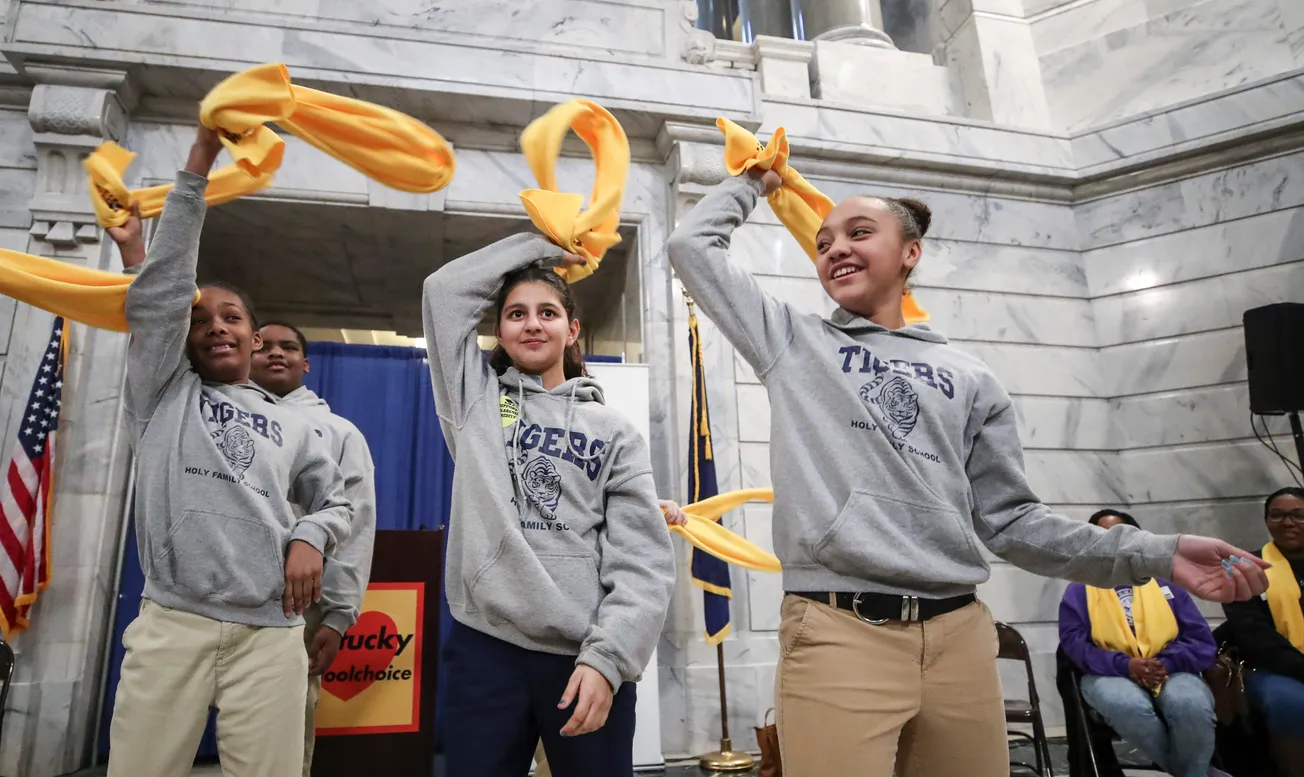Table of Contents
By Olivia Krauth of the Courier Journal
Despite protests, previous legislative fails, and an ongoing legal challenge, Kentucky lawmakers are again trying to offer tax credits to help families afford private school.
Sen. Ralph Alvarado (R-Winchester) and Rep. Josh Calloway (R-Irvington) announced Thursday morning they are filing legislation meant to bolster last year's education opportunity account law.
Their bills would allow any family in Kentucky, rather than those in the most populous counties, to use an opportunity account to pay for private school tuition.
Previous iterations of the legislation, including when they were called "scholarship tax credits," also wanted the statewide private school tuition option. But last year's law, which passed on the slimmest of margins, whittled the list of eligible counties in an effort to get votes.
The Council for Better Education, a group that represents most school districts in Kentucky, sued over the EOA program last year, arguing it illegally funds private schools using would-be public dollars.
Franklin Circuit Court Judge Phillip Shepherd then ruled the EOA law is illegal in part because the private school tuition component was not available to all counties.
Because of the lawsuit, which is ongoing, the EOA program has not been implemented.
Previous versions of the legislation required private schools receiving EOA funds to be certified by the Kentucky Department of Education.
Last year's law did not require private schools to be certified, The Courier Journal previously reported. Neither bill announced Thursday requires schools to be certified.
Diplomas from non-certified schools are not recognized by KDE, so students may need to pursue a GED for college or employment.
"We believe parents should be the ultimate decision makers in their children's education and have all options at their disposal," EdChoice KY President Andrew Vandiver said when asked about the lack of a certification rule.
Alvarado and Calloway's measures, filed separately in each chamber, would also expand the income eligibility threshold so more middle-income families would qualify for the program.
Calloway's version of the bill puts the eligibility cutoff at 250% of the income needed to qualify for free or reduced lunch — around $121,000 a year for a family of four. Alvarado's version has the cutoff at 200% of the FRL threshold — about $97,000.
Around 77% of Kentucky families would qualify for an EOA under Calloway's bill, said Anna Baumann, the deputy director of the Kentucky Center for Economic Policy. Under Alvarado's bill, about 70% of families would qualify.
Last year's bill cut off eligibility at 175% of the reduced-lunch rate — about $85,000 a year for a family of four. Baumann said 63% of families met this threshold.
Both bills would remove a provision sunsetting the program after five years, allowing it to continue indefinitely.
Both measures also allow the amount of tax credits to grow if enough donations are received in a single year. Currently, up to $25 million can be redirected from state coffers to provide credits to those who donate to groups managing the accounts.
If passed, Calloway's measure would allow that figure to balloon up to $100 million a year if enough donations are received. Alvarado's bill would cap that figure at $50 million.
Cross-posted from the Courier-Journal.







